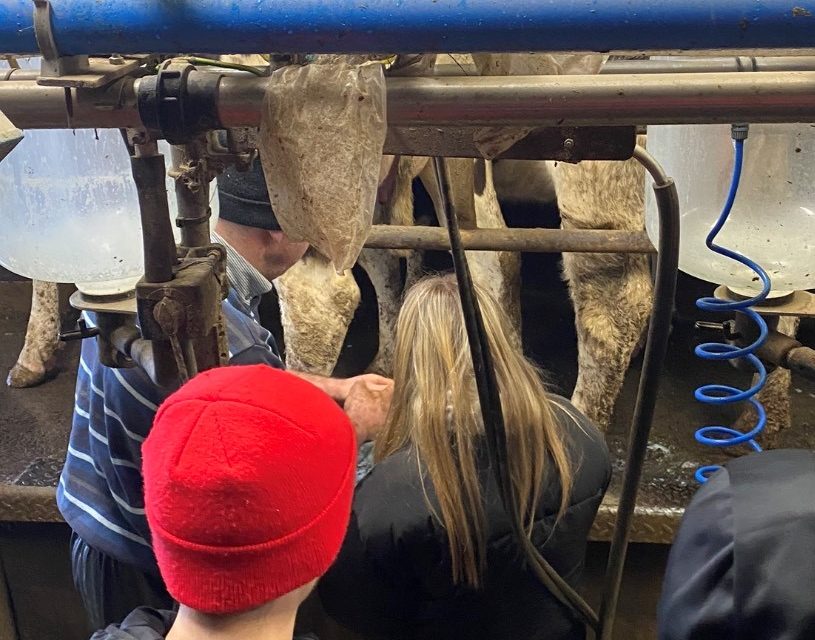According to teacher Eddie Holton, the first question he will be asked next week when he and his students return to the classroom is: “Sir, when are we going out on the farm?”
Holton teaches agricultural science to second-level students at the Maynooth Education Campus.
Students have been out of the classroom since March due to the Covid-19 pandemic, limiting their access to resources to do their chemistry experiments, music practice, history essays in libraries, and so on.
But, why is there commotion over how agricultural science students have specifically been impacted by the closure of schools?
‘Only 2 students in the class have access to farms’
Holton says that agricultural science is treated differently, “because it is different from a lot of other subjects”.
He has 24 students in his Leaving Certificate class – only two of whom have access to farms themselves.
“It’s a critical part of the teaching method with this subject that students get access to farms,” Holton continued.
“It’s a broad subject and even though I’ve only been based in the school for a few years, I can tell you how amazing it is to see students progress in the subject.
“The school is in a town; only two students in the class have access to farms. Not all students go into the subject in fifth year with a huge passion – some maybe had a small interest and knowledge and then by the time the two years are over, they often have a huge interest in it.
“I have seen past students go on into agricultural jobs whether it’s something in agri-business, veterinary, equine.
Their love for the subject starts when they start learning about it in school; but the classroom is only part of that.
What Holton means by that – and why him and other agricultural science teachers in Ireland are raising their concerns over the coming academic year – is the potential that students’ capacity to complete practical projects will be inhibited by Covid-19.
“I know that the first thing I will be asked by students next week will be: ‘Sir, when are we going out on the farm?'” Holton continued.
“I can talk in a classroom until the cows come home but the effect will never be to the extent of when the students get to go out and see the farm for themselves.”
‘Teachers looked like fools’
The new agricultural science curriculum was brought on board last year. Along with the limits of the pandemic, teaching was made even more difficult by delays in accessing the brief.
“The new curriculum brought about a change in the farm project to a practical assessment called the individual investigative study [IIS], which accounts for a quarter of students’ overall grade,” Holton said.
The brief for this was meant to be given to us in September 2019 and we only received it in December. The students were already at such an unfair disadvantage – we looked like fools any time students asked us anything about when we were getting it as we had no answers for them.
“When the brief was given, I started doing extra classes after school, only getting to do two before the pandemic hit.
“The majority of students voluntarily gave up their time to do the extra classes and were willing to continue doing so.
“That’s what we’re dealing with – genuine students who are being disadvantaged like this.”
‘Students have fallen behind’
Farm visits are carried out as part of the IIS which focuses on sustainability, and Holton said that students are “getting anxious” about all the uncertainty surrounding farm visits and how the project can be done without them.
What needs to be taken into consideration is that, okay, there may be X amount of measures in place, but there are also a lot of farmers who are older and who have elderly parents on farms.
“While everyone will comply with health regulations, farmers may not be so forthcoming about inviting classes on to farms due to the risk of the virus.
“This is all leading to students getting anxious because, realistically, they are behind where they should be; a lot of students have fallen behind.”
